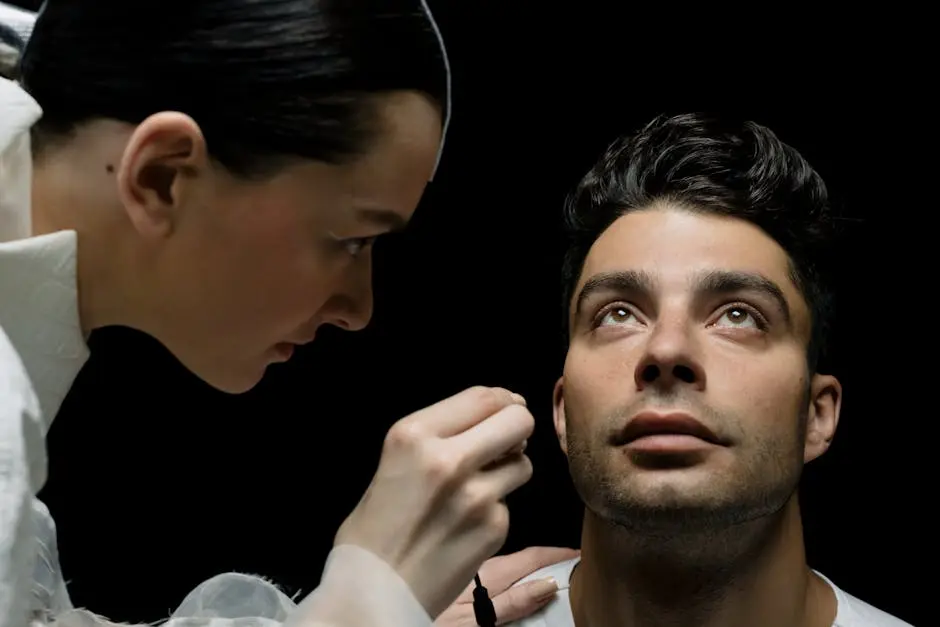
Visiting an eye specialist can sometimes feel a bit overwhelming, with so much information to take in. However, knowing the right questions to ask can make your visit more productive and informative. Here’s a helpful guide to the essential questions you should consider during your eye exam.
1. Understanding Your Current Eye Condition
Begin by asking your eye specialist to explain your current eye health and any changes from previous exams. Understanding your baseline is important for future comparisons.
Your eye health can offer clues about your overall health, so don’t hesitate to delve into details about any unusual findings. Whether it’s changes in your vision, unexplained discomfort, or chronic dryness, these symptoms can often be linked to underlying health issues. For instance, conditions such as diabetes or hypertension can manifest through eye changes, and it’s vital to discuss such possibilities with your specialist.
2. Clarifying Your Prescription
If you have been prescribed glasses or contact lenses, ensure you fully understand your prescription and what it corrects. Don’t hesitate to ask why certain lenses are recommended for your needs.
Understanding how your prescription impacts your day-to-day activities can lead to better usage and eye health. For example, if you experience strain while using digital devices, discussing the benefits of blue light blocking lenses can be invaluable. These lenses may help reduce digital eyestrain, particularly for those spending long hours in front of a screen.
3. Discussing Potential Warning Signs
It’s crucial to ask about symptoms to watch for that might indicate worsening eye health or the onset of new conditions. Early detection is key in management and treatment.
Symptoms such as frequent headaches, blurred vision, or a sudden increase in floaters should be promptly reported. Identifying these early warning signs can prevent complications, facilitating timely intervention. Moreover, discuss with your specialist any family history of eye conditions, as this information can be vital for proactive health measures.
Similarly, ask your specialist about the age-related eye changes to be aware of as you grow older. This allows you to address potential issues before they develop into serious problems, potentially saving you from long-term vision impairment.
4. Exploring Eye Care Recommendations
Your specialist can offer personalized advice on eye care routines, including diet, lifestyle changes, and protective measures to maintain healthy vision.
Incorporating simple habits like wearing sunglasses to protect against UV rays or taking breaks during screen time can be quite beneficial. A balanced diet rich in omega-3 fatty acids, lutein, zinc, and vitamins C and E can also contribute positively to your eye health. For more extensive protection, consider discussing specific recommendations tailored to your needs, such as specialized protective eyewear for certain activities.
5. Understanding Available Treatments
Learn about the treatment options available for any diagnosed conditions, including both traditional and cutting-edge approaches, to determine what suits you best.
From laser surgery to the latest medication advances, modern treatments have significantly expanded the options available for maintaining and restoring vision. Ask your eye specialist about the benefits and potential risks of these treatments. It’s essential to stay informed about new advancements in medical technology that could offer better outcomes for your specific eye conditions.
6. Discussing Follow-Up Appointments
Ensure you know when the next exam or follow-up appointment should be scheduled and the purpose behind the timeframe given. This helps in consistent monitoring of your eye health.
Regular follow-ups are integral to managing your eye health, particularly for those diagnosed with chronic conditions such as glaucoma or macular degeneration. Discussing the importance of each follow-up visit can offer reassurance and understanding about ongoing care strategies. Staying on top of these appointments can make all the difference in maintaining your vision.
7. Inquiring About Vision Enhancements
Ask about advancements in treatments or surgeries that could enhance your quality of vision or address specific vision goals you might have.
Vision enhancement is not just about correcting impairments, but also about optimizing your overall visual experience. This might include discussing refractive surgeries such as LASIK or exploring the benefits of custom-designed lenses tailored to your work or recreational needs. Modern advancements allow for personalized solutions, making it possible to achieve clearer, more comfortable vision.

